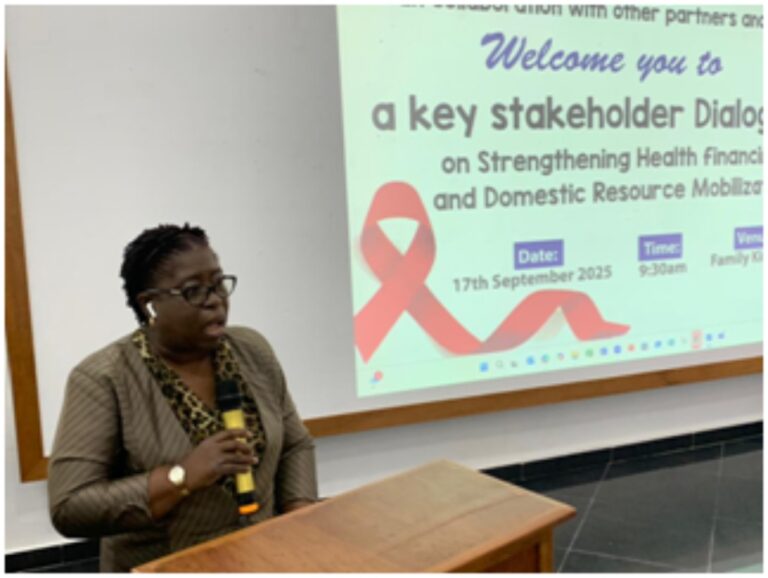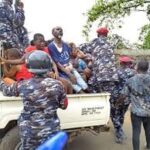Part Eight – Rebuilding Broken Institutions, Restoring Public Trust — Dr Ibrahim Bangura’s Restoration of Public Confidence in Institutions Agenda
By Jarrah Kawusu-Konte
Sierra Leone’s crisis is beyond socio-economic or political, it is deeply institutional. Over the last seven years, our state institutions, once seen as guardians of democracy and engines of development, have come under siege from patronage, manipulation and indifference. What remains are hollowed-out frameworks, offices with titles but no authority, processes with rules but no justice, agencies with mandates but no means.
Today, a growing number of Sierra Leoneans have lost confidence in the institutions meant to serve them. According to the 2023 Afrobarometer survey, over 70% of citizens believe that corruption in public institutions is on the rise. This perception is reinforced by the 2024 Transparency International Corruption Perceptions Index, which places Sierra Leone in the bottom third globally. These troubling indicators demand more than superficial reform — they call for a fundamental rethinking of how institutions are structured, governed, and held accountable.
Despite decades of reform efforts, persistent dysfunction reveals deeper systemic failures. This institutional decay is not merely a matter of inefficiency; it constitutes a profound betrayal of public trust. It erodes faith in the rule of law, undermines social cohesion, and creates fertile ground for injustice, disillusionment, and instability. No nation can hope to heal, unite, or progress when its foundational institutions are compromised.
Dr. Ibrahim Bangura understands this truth more intimately than most. As an institutional reform expert with a distinguished record of advising continental, regional, and international governance bodies, he recognises that strong institutions are the bedrock of any functioning democracy.
Between 2013 and 2016, he served as the Security Sector Reform Advisor for the UK-funded Access to Security and Justice Programme (ASJP) in Sierra Leone, during which he authored two national justice sector strategies. His expertise also shaped the Women, Peace and Security (WPS) Guidelines for ECOWAS and the strategic plan of the Counter-Terrorism Centre of Nigeria, which is in the office of the National Security Advisor. Yet his credentials extend beyond international policy spaces. His record within the All People’s Congress (APC) demonstrates a proven capacity to revitalise and strengthen party structures through principled leadership and institutional discipline.
When the APC faced its most contentious constitutional moments, Dr. Bangura was among those who led on strengthening processes and adherence to principles. He contributed to the party’s constitutional review process, ensuring it reflected inclusiveness, modern governance values and internal accountability. He mediated disputes through building confidence in systems.
Dr. Bangura’s work has taken him to institutions across the continent and beyond, teaching, advising, learning. He has seen how systems can transform countries, how weak institutions breed elite impunity, and how trust, once lost, is a long road to recover.
That is why he proposes building institutional resilience not around personalities, but around principles. Institutions should not collapse because an individual leaves, and they should not rise just because an individual enters. But leaders matter, and with the right leader, reforms can take root.
It is this mindset that Sierra Leone needs now more than ever.
Dr. Bangura’s reform agenda is anchored on five key pillars:
- Independent oversight: Reestablishing and insulating the independence of institutions like the Auditor General’s Office, Human Rights Commission and Public Procurement Authority.
- Meritocracy and efficiency in public service: Ending patronage and embedding performance-based recruitment, promotions and discipline across the civil service and parastatals. Revitalising performance-based contracts, rigorous stocktaking of MDAs.
- Digital and people-centered governance and transparency: Expanding e-governance platforms to track budgets, monitor service delivery and enhance citizen engagement by bringing back the Open Government Partnership model and practice.
- Whistleblower protection: Passing and enforcing robust legal frameworks that empower citizens and civil servants to report wrongdoing without fear.
- National values charter: Cultivating a civic ethos of responsibility and service from the classroom to the cabinet.
He calls it the Restoration of Public Confidence in Institutions and integrity Agenda, rooted in the belief that “a state must be honest with itself before it can ask its citizens to be law-abiding.” This is a philosophy backed by his own discipline as a scholar, trainer and public servant.
As the APC prepares for its National Delegates Conference, the party has a historic responsibility to choose someone who will not just campaign on change but live it. Dr Ibrahim Bangura has lived it, studied it, and led it.
Let us not entrust the rescue of our institutions to those who helped fracture them.
Let us not rebuild trust with those who commodified it.
Let us elect Dr Ibrahim Bangura, a man of systems, a man of substance, and a man of steadfast belief in the need for democratic good governance to be strengthen, thereby opening the space for all Sierra Leoneans to live an optimal life.
Let us heal institutions, unite our governance, and build a state worthy of our people.
…………………………………………….
Jarrah Kawusu-Konte is a communication Specialist, former Political Editor of the We Yone Newspaper (2003 – 2006) and former Communications Manager and Director of Communications at State House (2011 – 2018). Former APC MP candidate for Koinadugu District in 2002. A son of the soil, a believer in redemption, and a servant of hope.







